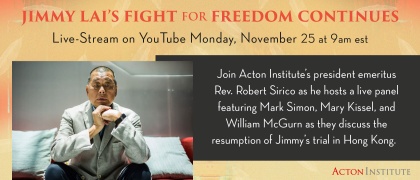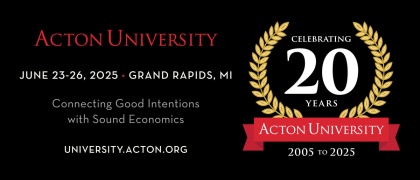How do we shepherd the flock in a way that leads to greater flourishing in our communities? What is the role of the local church in sustainable human development? Join us to explore how moral clarity and sense of ecclesial identity gives direction in our mission to be true disciples, fostering effective charity, empowering our congregations and creating a context for human flourishing.
The conference participants will envision a new framework for examining complex problems facing today’s church, founded in a theologically robust perspective. Participants will network with other leaders in their community, ground discussion in continued emphasis on real world applications of Biblical principles, and develop leadership capacity through the resources offered for each session.
NOTE: Conference participants must currently live and work in the Pacific Northwest region of the United States (Alaska, Idaho, Montana, Oregon, or Washington). Participants will represent a variety of religious traditions and backgrounds, and all attendees must share a commitment to religious values and a respect for the rights of individuals.
What: The objective of the learning community is to provide a laboratory for pastors and lay leaders toward a richer integration of faith, work, and economics for ministry that produces human flourishing.
Who: Pastors and lay leaders from the Pacific Northwest.
Where: We will be meeting in beautiful Seatac, Washington at Cedarbrook Lodge.
Space is limited and participants will be accepted on a rolling basis. All accepted applicants will receive lodging, conference meals, conference materials, and a travel stipend* from the Acton Institute.
*Travel reimbursement will only be provided for travel within North America
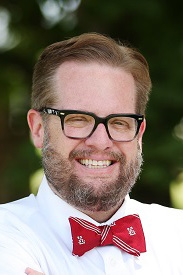
Hunter Baker, J.D., Ph.D.
Hunter Baker, J.D., Ph.D. serves as a university fellow and associate professor of political science at Union University in Jackson, Tenn. He is the author of three books (The End of Secularism (2009),Political Thought: A Student’s Guide (2012), and The System Has a Soul (2014)), has contributed chapters to several others, and has written for a wide variety of print and digital publications. His work has been endorsed by Robert P. George, Russell Moore, David Dockery, John Mark Reynolds and others. He is the winner of the 2011 Michael Novak Award conferred by the Acton Institute and has lectured widely on religion and liberty. In addition to his work at Union, Baker also serves as an associate editor for theJournal of Markets and Morality and as a contributing editor for Touchstone: A Journal of Mere Christianity. He is also a research fellow of the Ethics and Religious Liberty Commission. Baker co-founded the publication, The City, which is still published today.
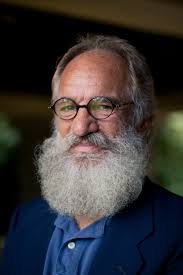
J. Daryl Charles, Ph.D.
J. Daryl Charles, Ph.D., is a contributing editor of the journal Providence: A Journal of Christianity and American Foreign Policy and the journal Touchstone and an affiliated scholar of the John Jay Institute. He is author, editor or co-editor of fourteen books, including First Principles and the First Freedom (Routledge, 2017), (with David D. Corey) The Just War Tradition: An Introduction (ISI Books, 2012), (with David B. Capes) Thriving in Babylon (Pickwick, 2011), A Return to Moral First Things: Retrieving the Natural Law (2008), and most recently, (with Mark David Hall) America’s Wars: A Just War Perspective (University of Notre Dame Press, forthcoming). Charles has taught at Taylor University and Union University, served as director of the Bryan Institute for Critical Thought & Practice, was a 2013/14 visiting professor in the honors program at Berry College, and served as a 2007/8 William B. Simon visiting fellow in religion and public life at the James Madison Program, Princeton University, as well as the 2003/4 visiting fellow of the Institute for Faith & Learning, Baylor University. The focus of Charles’ research and writing is religion and society, the just war tradition, humanitarian intervention, and the natural law. Prior to entering the university classroom, Charles did public policy work in criminal justice in Washington, DC.
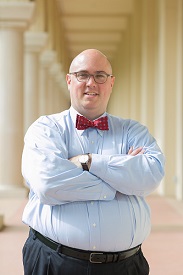
Trey Dimsdale, J.D.
Trey Dimsdale, J.D. came to the Acton Institute from Fort Worth, Texas, where he served as the Associate Director and Research Fellow in Law and Public Policy for the Richard Land Center for Cultural Engagement. At the Land Center, Trey helped to administrate a very active calendar of events that involved students, academics, and pastors from around the broader Christian world. Trey is actively involved as a board member and advisor for the National Faith and Work Association, the Lausanne Movement’s Workplace Forum, and as an organizer of a program in the Balkans that seeks to equip unemployed and underemployed young people to launch new businesses.
Trey served for several years as assistant pastor for preaching, teaching, and theology on the staff of a church near Kansas City, Missouri where one of his primary responsibilities, in addition to regular preaching and teaching, was the oversight of a fully accredited K12 Christian school.
Trey holds a B.L.A. degree with emphases in Political Science, History, and Natural Sciences from the University of Missouri-Kansas City, a Juris Doctor from the University of Missouri-Kansas City School of Law, as well as a master’s degree in theology and ethics. While in law school Trey was an active member and officer in the student division of the Federalist Society for Law and Public Policy, a member of the UMKC National Moot Court Team and Moot Court Board, and a staff editor of the Urban Lawyer journal, the official journal of the ABA’s Local Government Practice Division. He also served as a clerk with judges on the Jackson County, Missouri Circuit Court, the Missouri Court of Appeals for the Western District, and the United States District Court for the District of Kansas. He is a member of the State Bar of Texas.
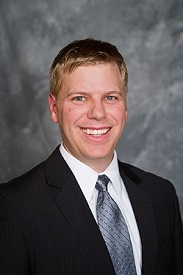
Dr. Stephen Presley
Dr. Stephen Presley holds degrees from Baylor University, Dallas Seminary, and the University of St. Andrews. He currently serves as Associate Professor of Church History and Director of the Southwestern Center for Early Christian Studies. He teaches a variety of graduate and postgraduate courses in Church History and Patristics at Southwestern. His research and teaching are intentionally interdisciplinary and he integrates Biblical Studies, theology and history. His areas of research include early Christian theology and exegesis, the church fathers, second century, historical theology, biblical theology, and history of biblical interpretation.
He previously served as Assistant Professor of Biblical Interpretation at Southwestern’s Houston campus (2011-2015) and taught various undergraduate and graduate courses in Biblical and Theological Studies. He also taught in Southwestern’s innovative prison seminary degree program at the Darrington State Penitentiary south of Houston.
His publications include the recent book: The Intertextual Reception of Genesis 1-3 in Irenaeus of Lyons (Brill, 2015) and many articles and essays on Scripture and theology in the early church including: “Irenaeus and the Exegetical Roots of Trinitarian Theology,” in Irenaeus: Life, Scripture, Legacy (Fortress, 2012) and “The Demonstration of Intertextuality in Irenaeus of Lyons” in Intertextuality in the Second Century (Brill, 2015). He has given many national and international presentations at various conferences including the North American Patristic Society, Society of Biblical Literature, and the Evangelical Theological Society.







